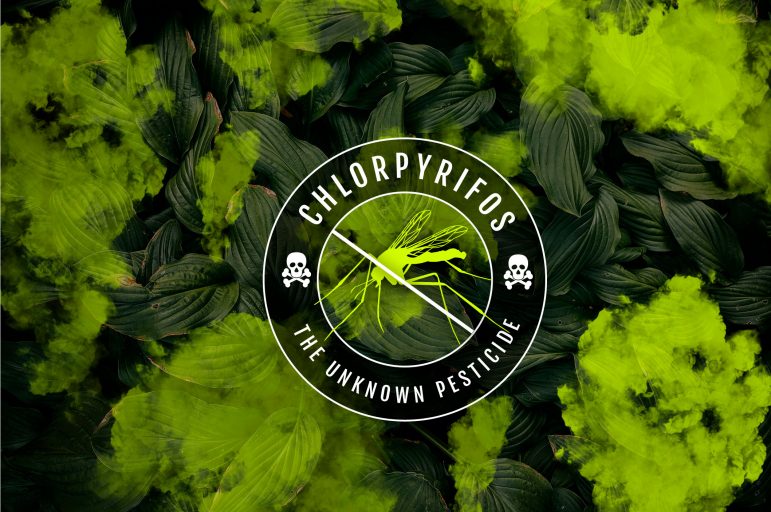
A pesticide known to cause brain damages in children and fetus is up for re-approval in the EU. If EU-states allow this to continue, it is a breach of the UN Convention of the Rights of the Child, UN Special Rapporteur on toxic waste says.
“When you look at chlorpyrifos as a case study, it becomes crystal clear that the UN Convention on the Rights of the Child is being ignored by numerous EU member states when it comes to toxic pollution and contamination”, says Mr. Baskut Tuncak, UN Special Rapporteur on Toxic Waste.
The Special Rapporteur refers to recent revelations by Danwatch and Investigative Reporting Denmark along with 7 other media showing how fruits and vegetables sold all over Europe are filled with a pesticide called, chlorpyrifos.
Chlorpyrifos is known to cause brain damages in children and fetus, and when States allow this to happen, it is a breach of the UN Convention of the Rights of the Child, the UN Special Rapporteur says. Fx. the obligation to secure the right to education for every child.
“If you reduce a child’s IQ, memory and attention span, that directly affects their right to education that develops their mental abilities to their fullest potential this is a breach of the rights of the child,” Baskut Tuncak says.
EU should apply precautionary principle
The UN Special Rapporteur on Toxic Waste highlights the severity of the situation for children exposed to chlorpyrifos through food.
“Levels of chlorpyrifos that scientist have detected in food are well over 100 times above levels considered safe for young children. Regarding water, there is no safe level of exposure for children. Given the grave risks to the neurodevelopment of future generations, EU should be applying the precautionary principle enshrined it is laws.”
All countries except the US have ratified the UN Convention on the Rights of the Child, which means they have declared their commitment to protecting the rights of the child through for instance, implementing legislation.
The problem is that EU member states have not implemented the UN Convention on Rights of the Child on environmental issues, fx impact from pesticides, which they should have, he says.
“It is clear to me, that if this Convention was being properly implemented on environmental issues, like pesticides, it would have triggered action within all relevant environmental authorities,” the UN Rapporteur says.
Political system in major crisis
The collaborative investigation by the international journalists also uncovered, how the EU-system is highly influenced by the producer of chlorpyrifos, formerly known as Dow Chemicals, today Corteva Agriscience.
By EU procedure, the producer is effectively paying for the approval of chlorpyrifos, despite the fact that independent scientists has criticized the corporate sponsored studies for being “biased” and “misleading”.
“The integrity of the entire system, that has been constructed for regulating and protecting humans from toxic chemicals, has essentially been eroded over the past few years”, Baskut Tuncak says.
He mentions the debate around another pesticide, glyphosate, produced by Monsanto, which has been linked to cancer but has recently been re-approved for sale until 2022 in the EU.
“I don’t know whether or not glyphosate is carcinogenic, but I can tell you that people increasingly do not trust regulators,” he says.
“This has become a serious problem for Governments. Unless they increase the transparency around what science is used, and communicate how these decisions are made in a way that satisfies and reassures the public that decisions are being made by trusted and independent authorities, not by the companies themselves, the system we have today will face a major crisis in the near future.”
What can be done from the seat of the UN Special Rapporteur on Toxic Waste?
“It will be interesting to know why those EU Member States that haven’t taken action to protect children’s health from chlorpyrifos have chosen not to. I haven’t seen any justification for why the evidence of harm for a decade or more was not sufficient to take action, regardless of what data industry was providing.”
“I think this is an excellent case for the UN Committee on the Rights of the Child committee to examine, regarding those countries that haven’t taken action to protect children’s health from chlorpyrifos. Why haven’t they? What is the justification?”
What about EU – chlorpyrifos is coming up for re-approval in December, would you have any actions?
“I can’t discuss my communication with either member states or regional bodies until they are made public; but this is certainly a case that resonates very strongly with me. I have been working to better implement child rights regarding toxic pollution since I took over position in 2014. In my 2016 report on the rights of the child, I reminded states that they have a duty under human rights law to prevent childhood exposure to toxic chemicals, including pesticides like chlorpyrifos, and that businesses have a corresponding responsibility.”
“It is surprising that EU bloc hasn’t taken action already considering how much more progressive Europe is on pesticide use compared to the US. There is more than two decades of strong evidence from the US saying chlorpyrifos poses a health risk, especially to children. In many cases, this is something the Europeans are usually aware of and here, they didn’t.”
The four core principles of the The United Nations Convention on the Rights of the Child are non-discrimination, devotion to the best interests of the child; the right to life, survival and development; and respect for the views of the child. Source: UNICEF
Article 24, Rights of the child: Children have the right to good quality health care, to clean water, nutritious foods, and a clean environment, so that they will stay healthy.
Every country in the world except the US, is a party to the convention of the child, which means they have declared their commitment to the protecting the rights of the child .